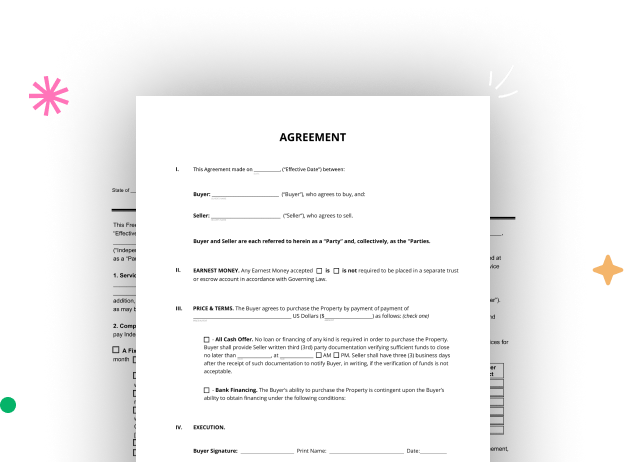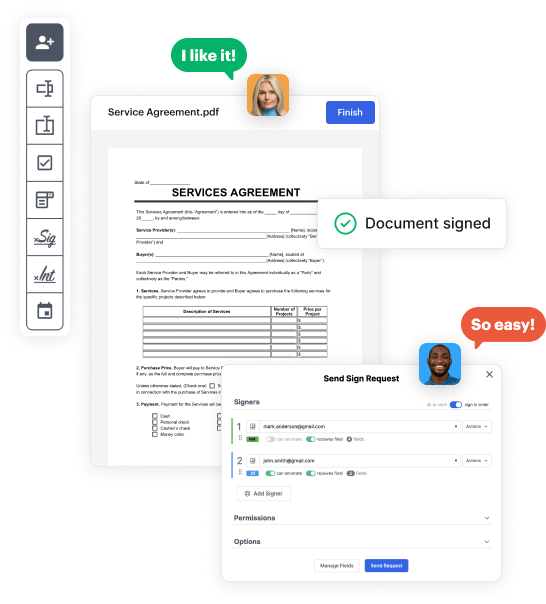

First, sign in to your DocHub account. If you don't have one, you can simply register for free.
Once signed in, head to your dashboard. This is your main hub for all document-based tasks.
In your dashboard, click on New Document in the upper left corner. Pick Create Blank Document to build the West Virginia Housing Law from the ground up.
Place numerous fields like text boxes, images, signature fields, and other elements to your template and designate these fields to specific users as necessary.
Personalize your document by inserting directions or any other crucial tips leveraging the text feature.
Carefully check your created West Virginia Housing Law for any typos or necessary adjustments. Make use of DocHub's editing capabilities to perfect your document.
After finalizing, save your file. You may opt to save it within DocHub, transfer it to various storage services, or send it via a link or email.